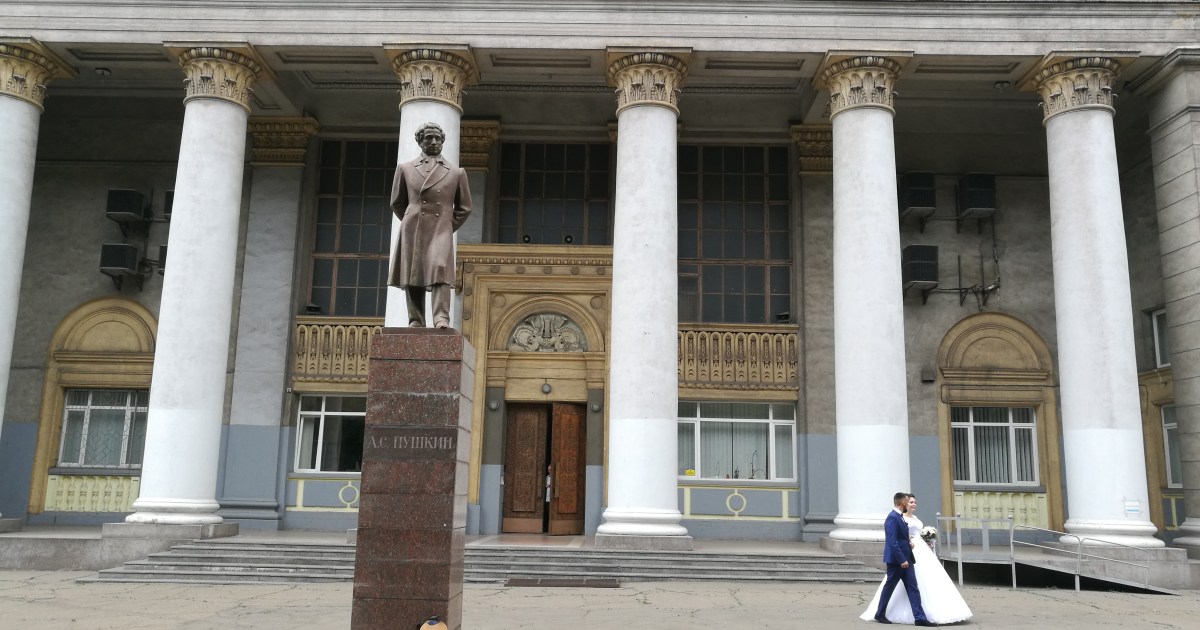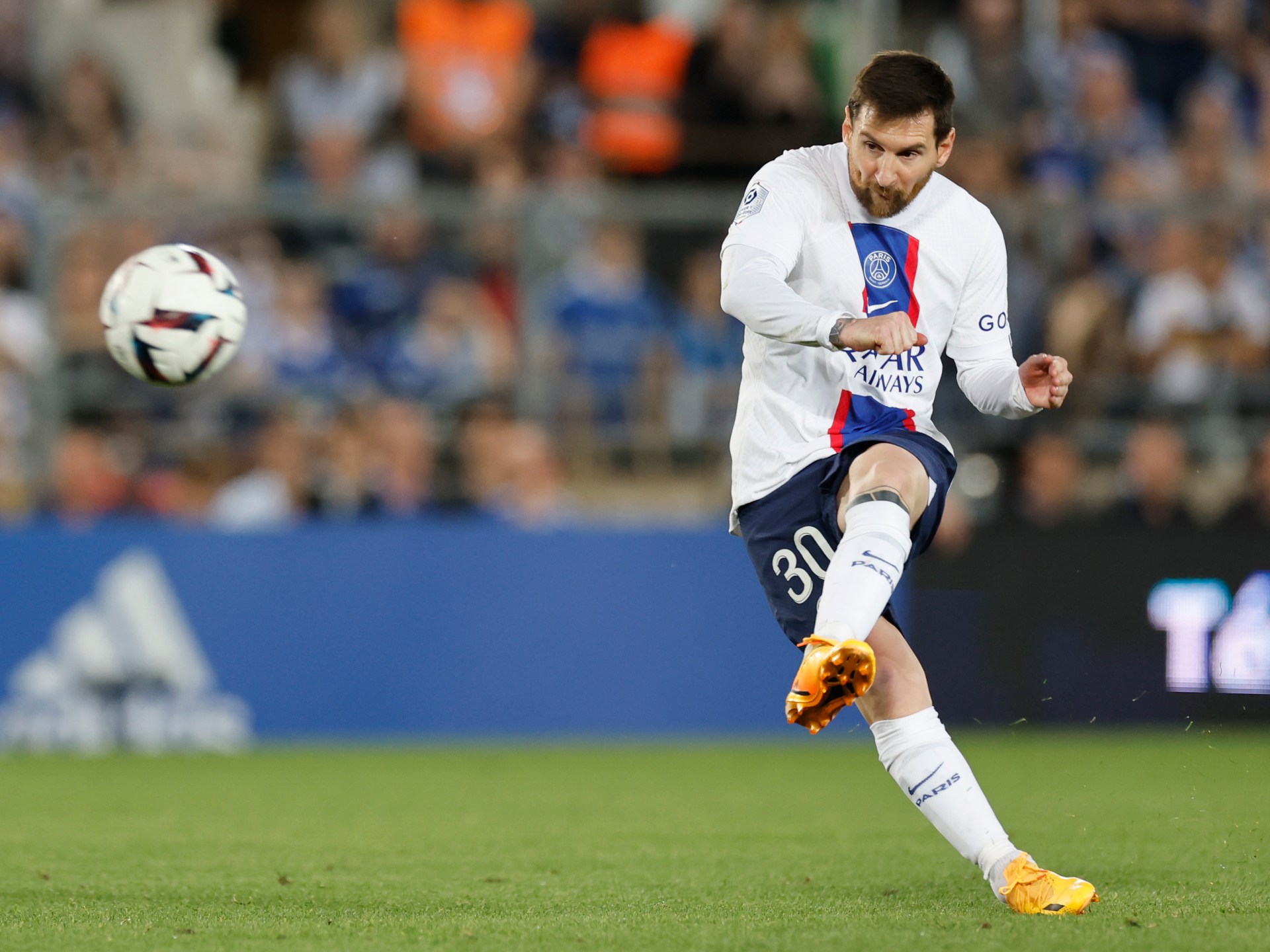Why is Ukraine trying to cancel Russian culture?
Kyiv, Ukraine – Leo Tolstoy of “War and Peace” fame is still excommunicated.
The Russian Orthodox church barred the white-bearded novelist from “ecclesiastical communication” in 1901 after he lambasted the “cunning lies” of organised religion.
A century later, the resurgent church, Russian President Vladimir Putin’s closest ideological ally, refused to withdraw the excommunication.
But the War and Peace author’s probable views on the future pillar of the Kremlin’s propaganda will not save a square in central Kyiv and a subway station under it that had both been named after him in the Soviet era.
An online poll will determine their new names as the latest phase of Ukraine’s “de-Russification” campaign gathers steam.
De-Russification began in the 1990s, when post-Soviet governments re-branded the central squares and main streets of each city, town and village that used to be mandatorily named after Soviet founder Vladimir Lenin.
Lesser Communist heroes were also erased from the ex-Soviet nation’s topography, but the names of many Russian artists stayed on, because Kyiv tried to be friendly with Moscow.
The campaign intensified after two anti-Moscow popular revolts in 2004 and 2014 – and reignited after Putin’s forces invaded Ukraine on February 24.
These days, many Ukrainians simply want to cancel Russian culture.
“Russian language and Russian ballet are the weapons against everyone who doesn’t want to be part of this under-empire,” Ihor Trubenok, a Kyiv native who turned 40 on February 24, told Al Jazeera.
The brown-haired sound engineer grew up speaking Russian, but switched to Ukrainian after realising that the two nations “parted ways” in 2014.
To him, de-Russification is Ukraine’s eternal and existentialist battle that will only end when the former imperial master falls apart.
“This fight went on 300 years ago, is going on now and will be going on forever. Ukraine as a nation and a culture will withstand, and the enemy will be dismantled,” Trubenok said.
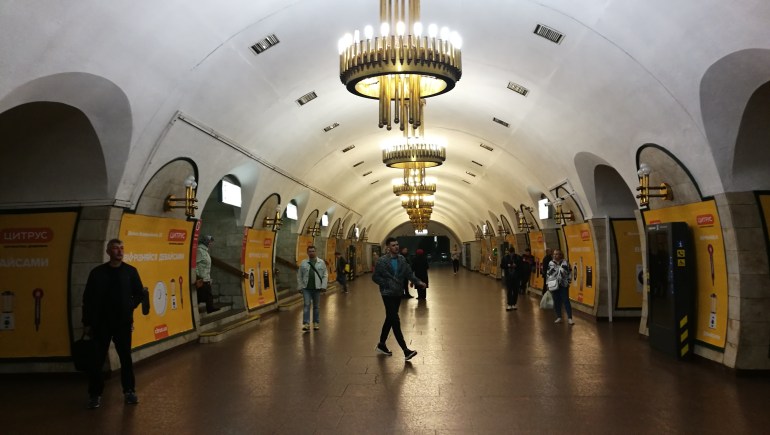
A fine line
Ukrainian President Volodymyr Zelenskyy insists it was Moscow that spurred the current phase of de-Russification efforts.
“You are doing it – in one generation’s lifetime and forever,” he said indignantly in a televised address on March 27. “You are doing your best so that our people abandon the Russian language, because Russian will be associated with you, only with you, with these explosions and killings, with your crimes.”
Moscow has for years accused Ukraine of “erasing” Russian culture and even a “genocide” of Russian-speaking Ukrainians.
And after the war began, Kremlin-friendly artists seem to borrow Nazi Germany’s vocabulary.
“There will be concentration camps, re-education, sterilisation of those who oppose the letter Z,” Russian filmmaker Karen Shakhnazarov said in televised remarks in early May, referring to the pro-war symbol.
And while pummelling Ukrainian cities and killing civilians, the invaders also destroy the landmarks of Russian and Soviet culture.
Russia’s most beloved poet, Alexander Pushkin, visited the Azov Sea port of Mariupol in 1820 after Czar Nicholas I exiled him for dissidence.
A bronze statue of the curly-haired poet of Ethiopian origin stood next to the Russian Drama Theatre – until bombardment destroyed both in April.
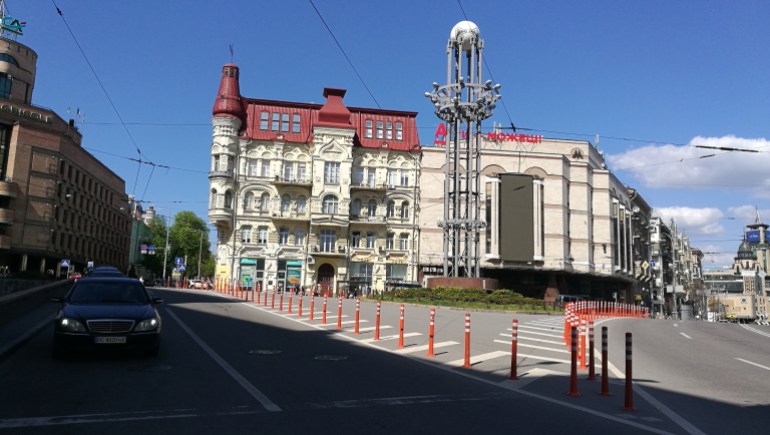
After what Nazis did in the Auschwitz concentration camp, German philosopher Theodor Adorno said that writing poetry was “barbaric”.
After a Russian bomb killed Boris Romanchenko, a 96-year-old survivor of four Nazi camps, in Kharkiv, Ukraine’s largest Russian-speaking city, observers ask similar questions about the Russian culture.
“Why is this refined, multi-faceted, humanistic culture unable to save Russia from cruelty, inhumanity, genocide?” publicist Andrey Okara said on April 15, days after hundreds of bodies of civilians allegedly shot dead by Russian soldiers were discovered in Bucha.
“Russian culture has for years served as our excuse,” Russian film critic Anton Dolin wrote on Facebook in early May. “Maybe, our culture is one of the reasons why the world has stood Putin for so long.”
Common history
Ukraine and Russia date their statehood back to Kyivan Rus, a medieval superpower whose area about 1000 AD was twice the size of today’s France.
Ukrainian Cossacks spearheaded the Russian conquest of Siberia and Central Asia, Ukrainian intellectuals joined the Russian Orthodox church, served in czarist and Soviet governments – and created works of art.
The line between what and who is Ukrainian or Russian was often blurred.
Pyotr Tchaikovsky, whose Nutcracker suite has become a Christmas season mainstay, or Igor Stravinsky, whose 60-year career redefined Western classical music, had Ukrainian roots.
The Kyiv conservatory is named after Tchaikovsky – and one of its professors says that Ukrainian musicians should take a break from Russian repertoire.
“We will have to put Russian culture on pause. For a long time,” pianist Olha Liforenko, 75, told Al Jazeera.
In “Russians”, an anti-Cold war anthem, pop singer Sting quotes a musical theme by Ukrainian-born composer Sergey Prokofiev – and mentions Nikita Kruschev, an ethnic Ukrainian Soviet leader who de-Stalinised the USSR.
Mikhail Bulgakov, whose Master and the Margarita novel inspired a song by the Rolling Stones, was born and raised in Kyiv.
But his bronze statue is scheduled to be removed from the central Kyiv street where his family witnessed the Bolshevik takeover of the short-lived Ukrainian Republic.
Bulgakov is among many Russian-language writers whose lives and works were tied to Ukraine and became part of its cultural DNA, observers say.
“Their exclusion from our cultural field is a deliberate depletion of the national cultural space, a violation of the European principle of multiculturalism,” Kyiv-based analyst Aleksey Kushch told Al Jazeera.
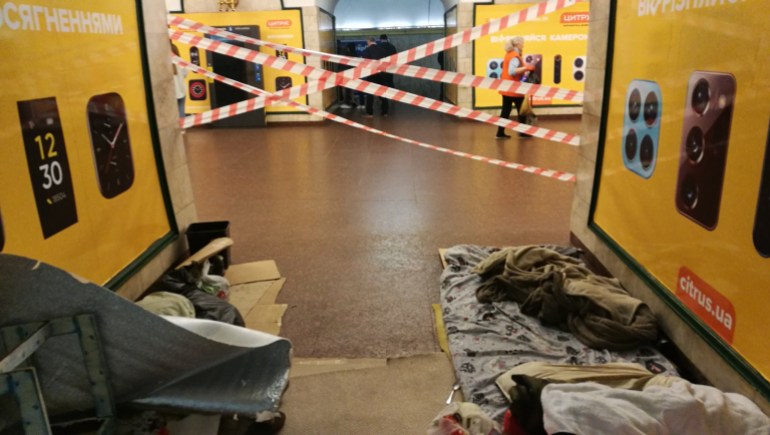
Too big for ‘nationalism’
The Kremlin has long decried Ukrainian culture as “nationalist” and “parochial”.
But with a pre-war population of 43 million, Ukraine is home to dozens of ethnic groups whose heritage is linked to the rest of Europe, the Middle East and even Asia.
Poet Paul Celan penned the “Fugue of Death”, one of the pinnacles of German modernism, and novelist Bruno Schultz is seen as an unsurpassed master of Polish literature.
But both were born in what is now western Ukraine – just like Joseph Conrad, author of “Heart of Darkness”, a classic English novel.
In early May, Natalia Haragoz, an ethnic Greek writer, died in the basement of her destroyed apartment building in Russian-occupied Mariupol, home to a large diaspora of Black Sea Greeks.
And in annexed Crimea, Moscow is cracking down on the language and culture of Tatars, a Muslim ethnicity that once dominated the Black Sea Peninsula and was ruled by a Mongol dynasty.
“One of the real strengths of Ukraine is its diversity,” said Ivar Dale, a senior policy adviser with the Norwegian Helsinki Committee, a rights watchdog, who has lived in Ukraine.
“Anyone who knows Ukraine also knows that Putin’s arguments about Ukrainian nationalism are untrue and meant to cause division,” he told Al Jazeera.

